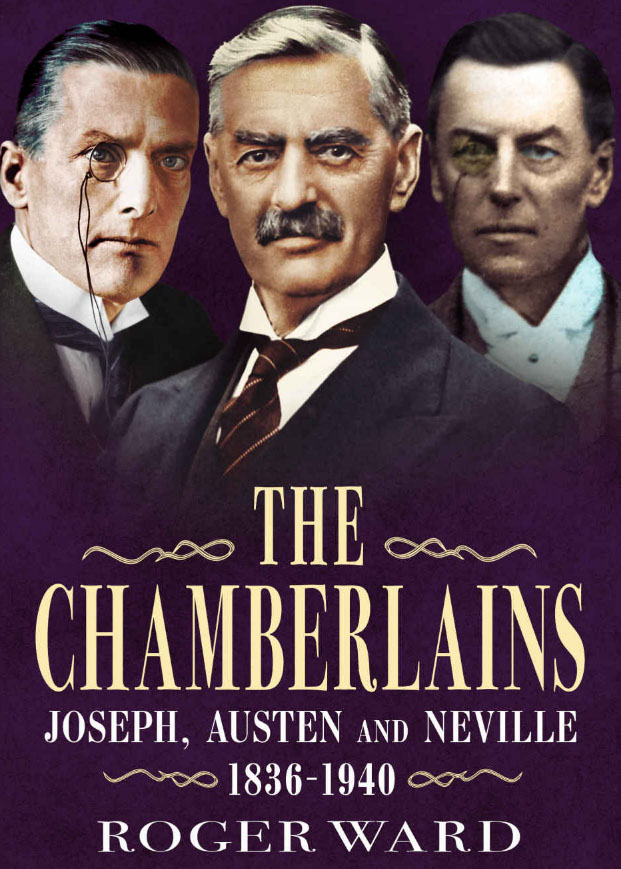The Chamberlains: Joseph, Austen and Neville 1936-1940
Review

The Chamberlains: Joseph, Austen and Neville 1936-1940, Roger Ward, Fonthill, 176p, £20-00. ISBN 978-1-78155-447-0
This book reflects Roger Ward’s extensive researches in to the local political history of Birmingham but it offers a much wider analysis as it explores the national contribution and role of the three Chamberlains. He makes the point that this political family were constantly present in Parliament from Joseph’s election in 1876 until Neville’s death in 1940, and he argues that they were the first non-aristocratic family to have such a prolonged presence in the reformed House of Commons.
My attention was caught by the way the family managed to maintain their grip on Birmingham’s parliamentary representation through the vicissitudes of their migration from the early Radicalism of Joseph to their 20th Century Unionism. Yet having done this, the Radical Joseph, who had reformed local government services and the life of Birmingham in the 1860s and 1870s, despite his Imperial preoccupations, was still advocating the introduction of old aged pensions before it was finally introduced by Lloyd George in 1909. Even more significant, his son Neville is revealed as the major force in social reform between the Liberal social reforms at the start of the Century and the Labour reforms of the 1940s, with his abolition of the Poor Law.
Roger also does provide a very helpful perspective on Neville Chamberlain’s ‘appeasement’ policy, with the explanation that, whilst this was going on, he was also presiding over a rearmament programme; and he also articulates Austen’s role in foreign policy, almost as a modern-day successor to Castlereagh as a proponent of seeking international consensus.

